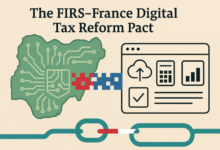
In a critical fiscal move with sweeping implications for Nigeria’s development agenda, President Bola Ahmed Tinubu has formally requested legislative approval for a new external borrowing plan totaling $21.5 billion, alongside a domestic ₦757.9 billion pension bond issuance. The twin proposals, tabled before both chambers of the National Assembly, signal a renewed push by the administration to finance critical infrastructure, close pension gaps, and inject liquidity into a sluggish economy.
But beneath the headline figures lies a deeper policy pivot—a reconfiguration of Nigeria’s development financing strategy at a time when global borrowing costs are rising, domestic inflation is entrenched, and investor sentiment remains cautious.
What Tinubu’s Borrowing Plan Entails
The borrowing package includes:
- $21.5 billion (USD)
- €2.2 billion (Euro)
- ¥15 billion (Japanese Yen)
- €65 million grant (non-repayable)
These are earmarked for major capital-intensive sectors: transportation (railways), agriculture, healthcare, education, water supply, and financial system reforms, among others. President Tinubu’s letter to the National Assembly stressed that the 2025–2026 borrowing window will be key to stimulating job creation, increasing food security, and addressing Nigeria’s deep-seated infrastructure deficit—exacerbated by the removal of fuel subsidy and declining public revenues.
The ₦757.9 Billion Pension Bond: Fiscal Justice for the Forgotten
Separate from the external borrowing plan is a domestic debt issuance worth ₦757.9 billion, targeted at clearing pension arrears owed to federal retirees under the Contributory Pension Scheme (CPS).
The President cited long-standing noncompliance with the Pension Reform Act (PRA) 2014, owing to persistent revenue shortfalls. As a result, thousands of retirees have been plunged into economic distress, with delayed benefits and unfulfilled promises.
According to Tinubu:
“Settling the pension arrears will not only restore confidence in the system but also inject liquidity into the economy and uplift the welfare of our senior citizens.”
The bond issuance, already approved by the Federal Executive Council, is a rare but necessary intervention to repair the credibility of Nigeria’s pension architecture—and prevent an erosion of trust among public sector workers and pension fund administrators.
Contextualizing the Numbers: A Delicate Debt Dance
Nigeria’s debt-to-GDP ratio remains moderate by global standards—hovering around 42%, far below the 70–80% thresholds seen in many advanced and emerging economies. However, the country’s real problem lies in debt service-to-revenue ratio, which hit an alarming 74% in 2023, per data from the Debt Management Office (DMO).
Simply put, Nigeria is not over-borrowed—it’s under-revenue’d.
The proposed external loans—denominated in USD, EUR, and JPY—would, if mismanaged, expose the economy to exchange rate volatility and foreign debt service pressures, particularly in a post-devaluation naira environment. On the flip side, access to low-interest concessional financing or multilateral development bank facilities could be the lifeline Nigeria needs to boost long-term productivity.
Key Takeaways from Tinubu’s Letter
- Development-driven borrowing: The loan plan is framed not as bailout spending, but growth capital—with projects aimed at fixing structural bottlenecks in infrastructure, education, water access, and agriculture.
- Macroeconomic recalibration: The letter acknowledges the economic shocks from fuel subsidy removal and prioritizes targeted spending to bridge inequality and boost job creation.
- Pension redemption as stimulus: Beyond social justice, the ₦757.9bn pension bond also serves as a fiscal injection mechanism, potentially increasing consumption, healthcare access, and even investment among retirees.
- Transparency and legislative oversight: Tinubu sought speedy, yet accountable, National Assembly approval—signaling a desire for institutional buy-in rather than executive fiat.
Looking Ahead: Strategic Borrowing or Structural Risk?
The administration’s bet is clear: invest now to grow later. Yet, the success of this debt-driven development push hinges on:
- Execution discipline: Projects must be completed on time, within budget, and with real developmental returns—not mired in bureaucracy or cost overruns.
- Revenue reforms: Nigeria must aggressively expand its tax base, curb leakages, and digitize revenue collection to improve its debt repayment capacity.
- Transparent fund management: Citizens, investors, and rating agencies will be watching closely for how funds are used—not just how they’re borrowed.
- Capital markets integration: The domestic bond issuance offers opportunities to deepen Nigeria’s local debt markets—if managed well.
BRANDECONOMY TAKEAWAYS
- Debt is a tool, not a trap—if used for growth: Tinubu’s proposal reflects a calculated risk. If executed with fiscal discipline, the loans could catalyze medium- to long-term structural transformation.
- Pension bonds = silent stimulus: By settling backlogs, government reactivates household spending power and restores trust in institutions.
- Nigeria’s fiscal reboot must include revenue expansion: Without fixing the revenue side of the equation, even the best borrowing plans risk turning into future crises.
- Legislative scrutiny is crucial: Parliament must insist on measurable milestones, quarterly impact reports, and strict project tracking mechanisms.
Verdict: The $21.5 billion loan request and ₦757.9 billion pension bond plan represent one of the most consequential financing proposals of Tinubu’s presidency. Whether it becomes a legacy of transformation or a cautionary tale of debt overreach will depend not on the numbers, but on the execution, integrity, and transparency that follow.










